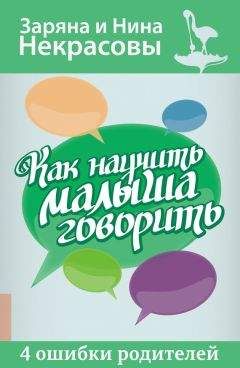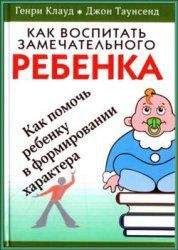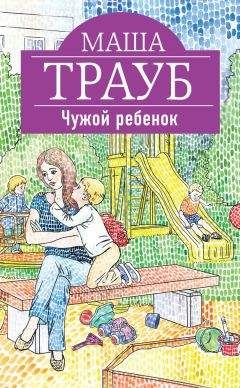Leo Frankowski - CONRADS QUEST FOR RUBBER
"Does this program sound interesting, so far?"
Sir Odon glanced at the rest of us, sitting on the edges of our chairs, and said, "Yes, sir. We are very interested."
"Good. Now, if you find something of sufficient commercial interest at the site of your operations, and if the local inhabitants agree to it, we plan to build permanent trading posts whenever possible. The team that first investigates an area will make a percentage of future profits, and will obviously be the best choice for personnel to run the trading post. It could be a very lucrative proposition, with considerable possibilities for independent action.
"Our ships will visit those posts periodically, of course, for commercial and religious reasons."
"Yes, sir. You say religious reasons?"
"Yes. We are not going out into the world for crass commercial reasons only. Oh, if a thing cannot pay for itself, we could not afford to do it too often, but our main reason for going out and discovering the rest of the world rests on the fact that the people in most of the world are not Christians. We want to give them a chance to come to Christ."
"Uh, sir, I'm not sure that any of us are truly qualified to teach religion," Sir Odon said.
"Well, I am sure, and yes, you're not qualified. If all else works out, your team will need an additional member, a priest. But we'll worry about that later. You will be interviewed by a number of other people. My secretary will give you a list. But so far, you seem to be the sort of people that we are looking for," Lord Conrad said as he leaned back in his chair, becoming less formal. He looked at me. "You are the same Josip Sobieski who operated on my eye, that time during the Battle for the Vistula, aren't you?"
I felt my innards tighten up, from my testicles to my throat. I admitted that I was.
"Thinking back on it, it really was an amusing misunderstanding. I've remembered it often, reminding myself not to take things for granted. Assumptions seem to always get me into trouble. I think I might have been a bit rude to you at the time, and I'm sorry for that. Please remember I was under a lot of stress and pain, and forgive me, will you?"
I said there was nothing to forgive, and I was glad when I learned that the results of my clumsy efforts had finally healed.
"Well, there's no proof that it was your fault the eye went blind in the first place. The surgeon who watched the operation said he wouldn't have done anything differently from what you did. So like I said, thank you for helping me.
"Oh yes, one other item. Sir Odon, next time you want to change jobs, please consider that one application is usually sufficient. We really do read these things, you know, and it wastes a lot of valuable time to have eight different barons all reading the same application."
"Yes, sir. Sorry, sir."
"Very good. Dismissed."
Chapter Thirteen
From the Journal of Josip Sobieski
WRITTEN JANUARY 28, 1249, CONCERNING OCTOBER 5, 1246
LORD CONRAD'S remarkably attractive secretary gave Sir Odon a list of people we were to look up, and a slip for the palatine authorizing rooms and meals for us while we were at Okoitz, which spared us the expense of staying at the inn.
We spent the rest of the day making appointments with the people we had to see. There was a medical doctor who would be giving us all a physical examination, since, if we got the job, we would be away from a hospital for years at a time. We had to be healthy to begin with.
There was a priest to see. We supposed he was to make sure that we were sufficiently devout to do God's work among the heathen. There were visits to three linguists, to make sure that between us, we really did speak all of those languages.
There were experts in agriculture, manufacturing, mining, geology, music, radios, mapmaking, and survival training, and finally a meeting with a certain Baron Siemomysl, the man who would be leading the Explorer's Corps.
After supper, the others retired to the Pink Dragon Inn, for a drink and a look at the scenery, while I dutifully made yet another visit to my family in the hopes that my father would finally talk to me.
My visit was just like all of the others I'd made over the years. Everyone was glad to see me, except for my father, who, as usual, walked out as I came in. I was almost used to it by now, like a dull toothache that has gone on for years.
I was feeling depressed as I walked back through the seemingly endless corridors and stairways of Okoitz, going to our assigned room, but I was cheered to find that the others were already back from the inn.
As expected, they had found suitable female company for themselves, and being truly decent sorts, they had invited along an extra girl for me.
It's good to have friends.
Most of the people we had to see were teachers, and their interest wasn't so much in deciding whether we could join the Explorer's Corps as seeing what we each knew about their own specialties, and what they would have to teach us to make us into useful explorers. Mostly, they were planning our curriculum, because, unbeknownst to us at the time, we were going to be spending the next eighteen months at the Warrior's School.
The exception was Baron Siemomysl, who could have sent us back to our oil tanker if he did not like us. But apparently he did, because by the end of the week, they gave our boat to some other bunch of deserving young warriors, and we went to Hell."
Only we didn't call it that anymore, and it didn't seem like Hell anymore, either. The section of that huge school we occupied was now a lot like the University of Paris, or so said some people who had been to France.
We spent a long army hour every day doing physical exercise, mostly working out with swords, axes, knives, or just fighting empty-handed. But the workouts weren't brutal any more. They were just to keep our bodies in shape while our teachers worked over our heads.
The Explorer's School was planned to have two functions: to train future explorers, and then to organize what we learned about the world into something meaningful. But naturally, they had to do the one thing before they could start on the other.
The first class through the school was only of company size, three dozen lances, but then the first year, we would only have one steamship in operation anyway. To teach us, there were some five dozen instructors, so we got a lot of individual attention.
The school was fascinating. They taught us everything known about the world, and all of our textbooks were annotated by Lord Conrad himself. Pick a subject, and we probably had a course in it. We had geography, geology, cartography, genealogy, navigation, and mathematics at one end of the spectrum, and woodcraft, music, and primitive construction techniques at the other.
Linguistics was important, and courses were taught in how to learn a new language, since in most places we would be going, people spoke languages that no civilized man had ever heard spoken. Lord Conrad claimed there were over six thousand languages in the world, and that someday there would be books at the school on every one of them.
One language that we all had to learn was Pidgin. This was an artificial language, one made up by scholars. It was based on Polish, but was very easy to learn. There were only four hundred words in the whole vocabulary. Anything else you wanted to talk about had to be done with combinations of allowable words. Everything was absolutely simplified. There were no plural forms. You said one dog, two dog, many dog. Cases didn't exist, and neither did tenses. To talk about the future, you used present tense with the word "gonna." For the past, you said "was," and then talked in the present tense. There were no sexual forms. Boys, girls, and dinner plates were all "him."
There was never anything ambiguous about Pidgin. The word "we," for example, can mean "you and me, but not those other people." Or it can mean "me and my friends, but not you." In Pidgin, there were two separate constructs, "you-me," and "me-fella."
To give you some idea of what it sounded like, in Pidgin, the Lord's Prayer started out, "Me Papa, Him big fella, Him alla time on top…"
It sounded strange at first, but the beauty of it was that it was extremely easy to learn. You could actually hold a meaningful conversation in it after studying it for only a few days. They claimed that a foreigner could learn it faster than a native speaker of Polish, since he didn't have anything to unlearn.
We were encouraged to use Pidgin among ourselves to increase our fluency in it, and that had the effect of giving the Explorer's Corps its own secret language. It was useful when you wanted to say something in mixed company, and you didn't want the girls to know about it, whereas the ladies had to go hand in hand to the pissatorium to accomplish the same thing.
The Wizards, the research and development people at Okoitz, had come up with a totally new sort of radio. It had at least five times the range of the old spark gap transmitters and much better sensitivity than coherers or even the newer cat's whisker receivers. It used radio tubes, and a super heterodyne receiver. It had rechargeable batteries, and it was one-sixth the weight of the old sets, even with the dynamocharger.
The explorers were the first people to be issued them, and of course we had to know how to operate, repair, and even rebuild them. All of us. Specialization was not encouraged in our corps, not when we would have to spend a year in possibly hostile circumstances, with no possibility of finding a replacement for anyone.
Geology was one of my worst subjects, and I was vastly relieved to learn that each explorer team would be taking along a compartmented box with well-labeled samples of a few hundred of the most useful minerals in it. Once I have something in each hand for comparison, I can usually figure out what is what.
I was very impressed with the quality of both my fellow classmates and my instructors. They were all remarkably intelligent, enthusiastic, and decent people. I'd often thought that one reason why my own lance was so close-knit was that everybody else in the world was so much duller than we were. When I first had that thought, years ago, I thought I was being shamefully boastful, and mentioned it to no one, but on more mature reflection, since I was now twenty-one, I have decided that it was nothing but the simple truth.
About halfway through the course, we had an eighth member added to our team, Father John. He was two years older than the rest of us, and had been an ordained priest before he went through (survived) the army's Warrior's School. Like all priests in the army, he was still officially a member of the Chaplain's Corps, and only on loan to the Explorer's Corps. He had a certain quiet strength to him, and always pulled more than his share of the load, never claiming any special privileges. He was easy to get along with and merged well with the rest of the group. Even our drinking and womanizing did not seem to bother him, or at least he never scolded us, the way so many other priests did, and he would often show up for at least the start of a drinking session. Also, he played a very fine violin, which made him particularly valuable when we made music. He eventually became the confessor of each one of us.
Yet he was not lacking in zeal, and whenever he spoke about the future, when he would have a chance to convert the heathen to Christ, you could see a certain light come on in his eyes. It was a beautiful light, but sometimes it was also a frightening one.
Toward the end of the course, almost as an afterthought, we were issued firearms of a new and interesting sort. The powder charge in the old, heavy swivel guns was ignited by a "firecracker" wick at the back of the cartridge that was lit by an alcohol flame. This was good enough when you knew a battle was coming, but it could be very awkward when unexpected things started to happen quickly.
The new guns were handheld rather than mounted, and were much lighter, about ten pounds for the rifle and three for the pistol. Ignition was by a piezoelectric crystal in the stock which, when struck by a small hammer, put an electric current through a spark plug at the back of each cartridge.
The pistol was a single-shot, break-action affair, while the rifle had a seven-shot, spring-fed clip and a bolt action. We were issued new knives with the rifles, called bayonets, which fastened to the end of the barrel, making the weapon usable as a short pike. All told, it was a remarkably well-thought-out weapon system, and we were proud to be the first unit to be issued it.
Graduation involved both written and oral examinations, and a number of practical tests as well. One of them involved being dumped naked and alone in a forest in the early spring, and being expected to build yourself suitable shelter, to make yourself suitable tools, clothing, and weapons, and to find or kill sufficient food to keep yourself alive for two weeks. They actually weighed you before and after the test, and you lost points if you lost weight!
In the end, everyone in my lance graduated, and most of the others did, too. We had a nice commencement ceremony with everyone in our eight-pounds-of-gold uniforms, and they handed out illuminated certificates to us with our friends and parents watching.
Well, parent, in my case, since my father refused to attend.
Most important for Sir Odon and all his loyal men was the fact that with graduation, our long-awaited promotions had at last come through. I was now Sir Josip, at eight pence a day, and Sir Odon was now a knight-banner, at twice that, with the right to use a triangular flag on his cavalry lance, if he ever got one, or, indeed, if he ever got a horse.
This made for some unusual ranks in our charts. The lowest rank in the Explorer's Corps was a knight, and the lance leaders were all now knight-banners. In theory, we were organized in the usual six lances to the platoon, but since each lance would be acting independently, there were no platoon leaders. Lance leaders reported directly to the company commander.
And our company commander was not the usual captain, but Baron Siemomysl himself.
Still, nobody ever said that the army had to be absolutely consistent. In the Wolves, who are made up entirely of members of the old nobility, the lowest rank is also the knight, and platoons are led by captains.
The next day, we were loaded into six chartered riverboats for the trip north. The reason for this seemingly lavish excess of transportation was that each explorer lance had an entire war cart filled with its supplies for our upcoming adventure. That was eighteen cubic yards, a ton and a half per man.
Besides our personal gear, which included everything from our armor and weapons to a year's supply of underwear and toothpaste, we had a wide variety of preserved food, enough to feed us all for three years. The trip home might be delayed, or we might have to feed a hungry tribe in the winter.
We also carried a wide variety of trade goods — tools, weapons, jewelry, cloth of many varieties, glassware, needles, fishhooks, books, even toys and games.



